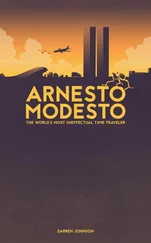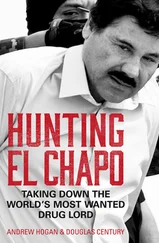I took a long break and gave the team a snack. The breather refreshed everybody. Afterward Gnat and the Beast shared the work, holding their lines tight as the team hauled my sled up the steep bank fronting Yentna Station, Dawn was breaking through a mist of sprinkling rain.
Other racers were discussing the wisdom of laying over at the checkpoint, delaying their final push until the cool evening hours. It was unseasonably hot—30 degrees. Too hot for sled dogs. But I wasn’t listening. Rummy with lack of sleep, I had a raging case of finish-line fever. We were running in the top ten. Who knows how high we could go?
I made arrangements to drop Gnat and Beast at the checkpoint. Had I stayed and rested through the day, I could have taken them with me. But I was no longer treating the Klondike as a mere qualifier, with added benefits as a training run: I had shifted into racing mentality. While the other dogs rested, I went over my sled, dumping every ounce of unnecessary weight. In the process, I set aside the sac holding the team’s snacks. I planned to put it back absolutely last so that it would remain within easy reach.
Five hours after our arrival at Yentna Station, I pulled the hook, sending my dogs charging over the bank. Sunshine had burned away the clouds. Over the next hours, it baked us. My Fairbanks-conditioned dogs were reduced to plodding.
It was sundown by the time we finally reached the junction of the Yentna and the Big Su. This kind of passage always scared me. The broad river’s uneven surface hinted at unseen forces that might suddenly break loose, leaving unlucky travelers swimming or clinging to teetering chunks of ice. But soon I was treated to a view that brushed fears aside. The sinking sun was firing a rosy salute along Mount Susitna’s curves. From the west, a headlike ridge rose to a mountainous shoulder, dipped, then expanded to a hip, which descended in a leggy sprawl. Or maybe Susitna was resting on her back, showing off her bosomlike ridge. From either perspective, it was easy to see why locals called the formation Sleeping Lady.
The wind rose as we passed through Susitna Station, a largely abandoned turn-of-the-century settlement and one-time Dena’ina Indian community. My dogs were due for a break, but I pushed them onward into the forest. I wanted to reach the entrance of the frozen marsh before stopping, so as to position the team for a strong march to the finish line.
I was fooled by the trees and didn’t see the marsh coming. We were 20 yards out on the icy flats before I managed to stop. The wind here was fierce, gusting maybe 40 miles per hour across the exposed, barren ice. It was a terrible place to stop, but I wasn’t thinking clearly. I dug into the sled bag for my beef treats. The snack sac was missing. Appalled, I remembered placing it in the snow outside the roadhouse.
Belatedly, I tried to get the team moving. But the dogs, seeing no snacks forthcoming, were too tired to pay any more attention to me. Their survival instincts had taken over. Curled in tight balls, backs to the wind, they slept on the ice. The dogs had crashed on me.
My snowmachine suit was soaked from rain and exertion. On a colder day, the situation might have been grave. Today the weather was too balmy to pose any danger. I gave the dogs half an hour, then dished out globs of a pre-prepared meal from the cooler. A fellow racer caught up while I was feeding.
“Everything all right?” he shouted over the wind, no doubt puzzled to see me stopped in this miserable spot.
I pretended everything was under control.
After the meal, the dogs shook themselves and stretched. My athletes looked ready to go. I gave the word. Root, one of my most dependable dogs, was having trouble with her hind legs. She tried to run but couldn’t keep up. Jamming the hook into the ice, I unclipped her, figuring I’d pack her in the sled until we reached a more sheltered spot. I had my right hand on her collar and was reaching for the sled with the other — when the team bolted.
With a flying lunge, I grabbed hold of a rear stanchion. The dogs dragged me a good hundred yards on my knees, along with Root, before they finally stopped. Staggering to my feet, clutching a shoulder that felt half torn from the socket, I stuffed Root in the sled and ordered my mischievous friends onward. Amazing what a little rest could do for them.
Intense wind and sleet met us at Flat Horn Lake. The trail was awful. Raven and Harley kept punching through the thin crust and sinking into the powder underneath. The tracks ahead of us abruptly ended in the middle of the lake. Scanning the horizon, I saw the lights from two other teams inching along the distant rim. It was Plettner and her browbeaten disciple, Lenthar. Raven, always prone to go where she pleased, had skipped a turn. Thankful to have someone pointing the way, I swung my team around.
In the last 15 miles of the race the dogs slowed to a crawl. The heat was getting to Harley. The big dog kept dragging his buddies off the trail to munch snow. I could sympathize. Hills I had hardly noticed a day ago had mushroomed into mountains. My legs were cramping. I considered stopping to camp, but the alcohol for the cooker had somehow spilled. I couldn’t even make broth for the dogs, and further delay might even hurt the team.
The dogs and I emerged from a slough onto Big Lake in a near rout. Loaded in the basket were Root, who seemed shell-shocked, and Denali. The weary young male had been having trouble keeping his feet on the icy homestretch. After his third stumble, I let him ride the rest of the way.
Marcie and a few friends cheered when I crossed the finish line in twelfth place, shortly after midnight. The race had taken 38 hours. Stepping off the sled, I couldn’t get my legs to work. My feet were concrete blocks.
The dogs saw the truck and hauled the sled to it like champs. They didn’t even look winded as I left them, chained around the truck, and went in search of hot water to soak their food. I’d already given each dog a frozen whitefish. Their gnawing could be heard 50 feet away.
Baron was still celebrating his victory when I climbed the monstrous staircase to the inn. Fidaa Daily smiled nervously. She was waiting for news of her husband. Marcie, who’d slipped to seventh in the final miles, declared that her next outing was a shopping trip to Nordstrom.
“I need to remind myself I’m a woman.”
The 200-mile ordeal snuffed any interest Marcie might have had in running the Iditarod. “I’d rather go to an Iraqi torture camp,” she declared, loud enough for the entire bar to hear.
Sitting in the warm lodge with fellow Klondike mushers, I felt humbled and apprehensive. I’d earned my right to compete in the big race. For the first time, absolutely nothing stood in the way. That was sobering, because my 35-year-old body was a wreck after just 200 miles on a sled. What was Iditarod, more than five times as long, going to do to me?
Grabbing the food bucket, I headed back down to the dogs.
Only three weeks were left. Self-doubts and potential threats to the team’s well-being dominated my every waking moment. Even the home trails felt sinister. Blizzards had buried my landmarks, and I was driving the dogs longer and longer distances, getting lost for hours at a time.
It was warm out, 3 degrees above zero. I set out for Mike Madden’s house with an eleven-dog team, intending to make a quick turnaround. The entire 50-mile trip should have taken about 7 hours, including snack breaks, simulating the travel time between average Iditarod checkpoints.
I was using Chad in single lead. That was the Coach’s new strategy for handling our temperamental wonder dog. Chad, a quick blond male, trotted with one hip swung sideways. It was an odd gait and often caused him to bump his coleader. Mowry hoped that Chad might be one of those rare dogs who preferred to lead alone. All through the fall Chad was our unquestioned top dog. He was strong, smart, and fast. Having Chad up front amounted to having power steering. Whisper “Gee,” or “Haw,” and turns were immediate.
Читать дальше












